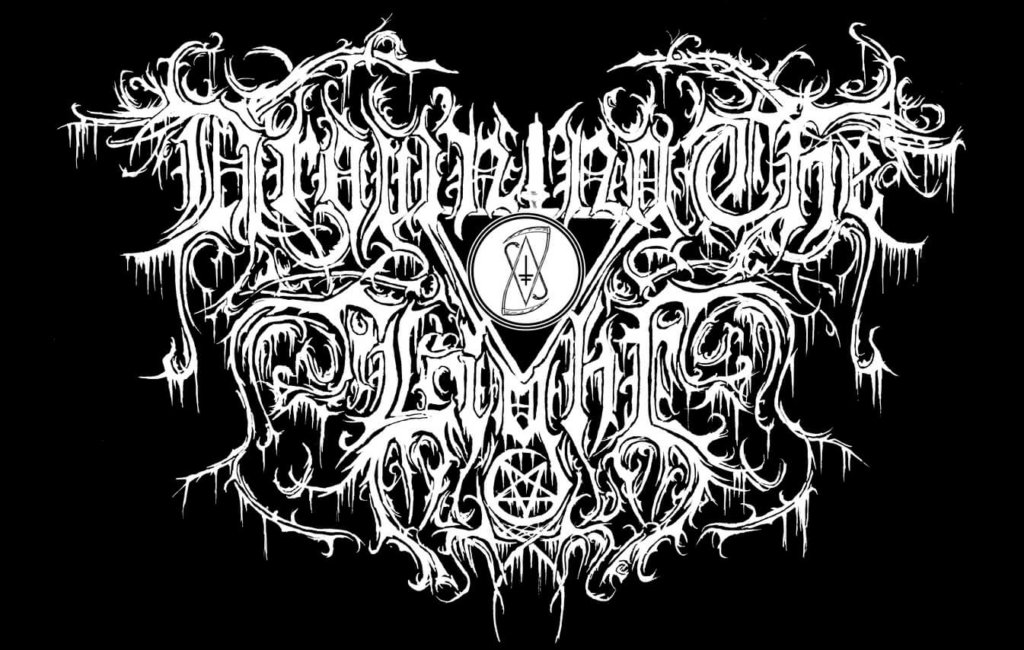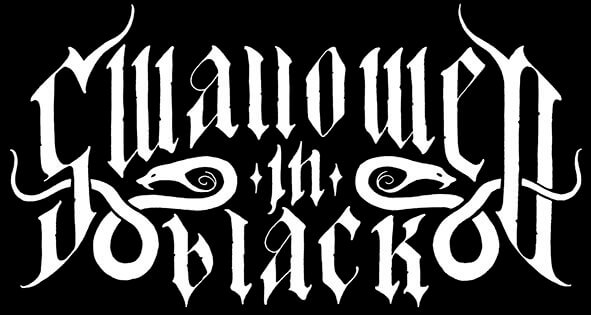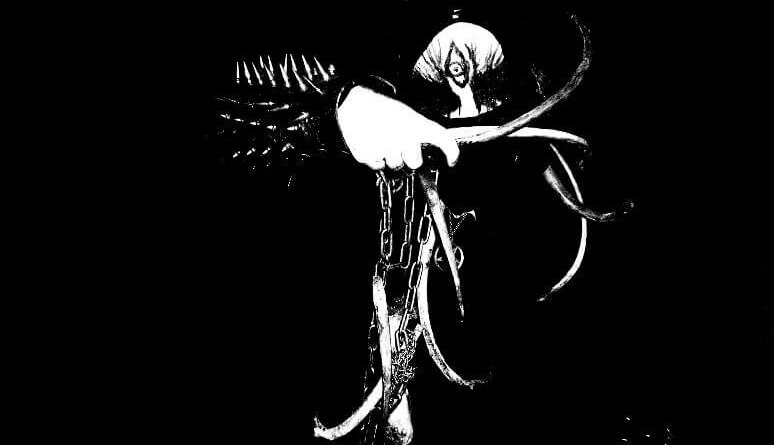“IF AN ADVERSARIAL OR OCCULT CURRENT IS NOT PRESENT WITHIN THE WILL OF A BAND, I AM NOT SURE WHY THEY ARE CREATING BLACK METAL” – AZGORH (DROWNING THE LIGHT)
Faithfully following the crooked path for twenty fallen years, Drowning the Light has defiantly and independently crafted a teeming tome of singular Black Metal mastery, vampyrically drawing seemingly boundless inspiration from the occult mountain to channel a rarefied strain of Setapophian Black Magick. Casting his restless mind back over two decades of darkness, devotion and demonic possession – from the all or nothing days of the early ‘noughties to the rich current harvest giving rise to another bountiful circle of new spells – serpentine visionary Azgorh provides a unique and detailed insight into the past, present and future of one of Black Metal’s most enigmatic, enduring and essential entities.
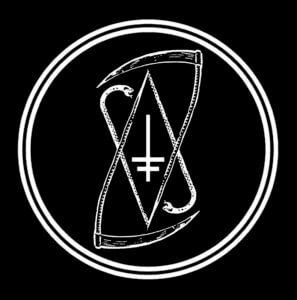 Is Black Metal more than music? A state of mind where the philosophy, convictions and message of the artist should innately transcend the sounds they evoke? Do you find it sad and depressing that Black Metal has become an all-inclusive free-for-all that is ideologically far removed from the genre’s defiant and adversarial roots? Is the very idea of inoffensive Black Metal one of the most offensive and repulsive concepts ever?
Is Black Metal more than music? A state of mind where the philosophy, convictions and message of the artist should innately transcend the sounds they evoke? Do you find it sad and depressing that Black Metal has become an all-inclusive free-for-all that is ideologically far removed from the genre’s defiant and adversarial roots? Is the very idea of inoffensive Black Metal one of the most offensive and repulsive concepts ever?
“Black Metal should always be more than music, and always will be for me. It should be a sonic reflection of the shadow of the artist’s soul or those darker things beyond the artist that they wish to reflect.
“It is more so disappointing that Black Metal has become so fragmented and the majority of it just another disposable and easy-to-digest consumer product for the masses. There are of course many bands who still keep the old flame burning but they seem few and far between, and on the opposite end of the spectrum you have those who are going out of their way to try and change the very nature of the beast, which is of course a futile exercise, but they are always the ones on social media screaming the loudest or who have the more-mainstream metal media behind them, which is not surprising as those same media sites are the ones who try to do hit pieces on any Black Metal that is ‘beyond the pale’ or against the grain of the modern world, because ultimately those sites and the bands they prop up as ‘the new face of black metal’ want to make the genre as easy to access as possible so they can maximize financial exploitation from fans without also losing corporate sponsorship for promoting bands which may be a little too ‘unsafe’ for their sensitive souls.
“This is all of course just a microcosmic reflection of the society we live in currently.
“However, I don’t let what others do have an impact on my own creation. If an Adversarial or Occult current is not present within the Will of a band, I am not sure why they are creating Black Metal. This Adversarial current of course extends to those bands who use this art as a form of pure hatred towards modernity, or those who channel the ancient blood that runs through their veins, that genetic memory which recoils and revolts by nature at the very thought of what this world has become and longs for ancient times. The further normalization of the genre only breeds further disappointment in most bands, even among the old bands who forget why they created this art in the first place.”
Much of what qualifies as and is accepted as Black Metal these days could at best be described as Black Metal in name but not in nature. Should there be certain prerequisites or conditions before a band or act is considered worthy of the Black Metal label? While listeners and performers who stay true to the original core ethos can apply mental filters and focus only on what’s authentic, are we getting close to the stage where BM has become such a parody of itself that you feel like distancing yourself from the genre entirely? Or is it better to stand and fight your corner?
“I would describe most of those bands as mere emulation and at most ‘extreme metal’ (in regards to sound but no soul), as Black Metal should always have a certain spirit behind it. This is why you see many people speaking about synth or dark ambient music by pagan or occult practitioners and relating it to Black Metal, even more so than any other metal genre, because of that spirit and serious nature when creating that reflection or ritual.
“As mentioned previously, I do not let these sad excuses for Black Metal impact upon what I create, and there is always that thought of not wanting to be associated with bands that deem themselves the ‘same’ as you, and this is probably why Black Metal fragmented into so many subgenres, so people could distinguish themselves from others as well as that strange human need to pigeonhole things into very specific boxes. However, Drowning the Light will always be Black Metal. I don’t think there is anything else it could be, even though I like to view my own creations and the ones I am involved with as almost a ‘scene unto itself’; I know it will always be attached to the genre as a whole, and I have no qualms with that and simply ignore the clowns.
“If others make a joke of Black Metal, or are a joke, it is usually done by those who want to sanitize the genre by adding comic relief, but these bands will never speak for all bands. If anything, I feel a wave is coming from the other direction, where many of these ‘black metal’ bands will want to distance themselves from Black Metal because the more ‘normal’ humans find out about the genre’s history and some of the elements within the genre, the more they freak out about it or connect bands to subject matter that a lot of those bands didn’t associate with in the first place, so those bands crumble and flee, as they should. Good riddance. It seems to be happening to a lot of these children from the ‘hardcore’ metal scene and pop-up labels that have only existed in the last five years or so. We all have to start somewhere (and of course I do appreciate those individuals who understand the genre regardless of how they arrived here, those who keep the old flame burning may be few and far between but they always stand out), however the majority I have come across seem to not truly understand the genre or what it has always been, thus fall apart.
“Well I should say this has always been a thing, where bands’ lifespans are usually two-five years, then they vanish back into the murk. Most fans romanticize this as the band returning back to the shadows in silence, lurking and one day returning, when in reality it is usually people who got over the genre (even if they were serious to start with), got burnt out because they lost themselves in the genre, and most of the time these people are now just ‘normal’ humans, who ‘grew out of it’. It was a youthful phase for them and nothing more. A surface level artistic outburst, but after that surface was scratched there was nothing beneath it.
“Then, of course, the even more tragic trend we have seen in recent years is a lot of these bands which did ‘leave the scene’ ten-twenty years ago make a return because their old demos or albums now have a cult status so they think they are rock stars or money is thrown at them, or they were bored during covid years. Yet these people do not have that spirit they once had, there is no fire nor even a spark of that initial black flame of the adversary left in them, so the old ‘cults’ have now dropped the imagery (When a band that did wear corpse paint no longer wears paint, it is usually a sure sign of a psychological change for the worse in regards to their attitude towards Black Metal, or that they simply didn’t have any significance behind wearing the paint in the first place, now they want people to look at them, see their ugly mugs and acknowledge their ‘genius’, because it has all gone to their heads and they think they are famous – it is truly tragic and embarrassing). There are plenty of those old cults I simply can no longer listen to, or try to keep in mind that they did do those albums with some semblance of darkness in their hearts when they were younger.
“Of course there are the few old bands which return and still hold that darkness, and there is something quite special when that happens, as it is very rare.”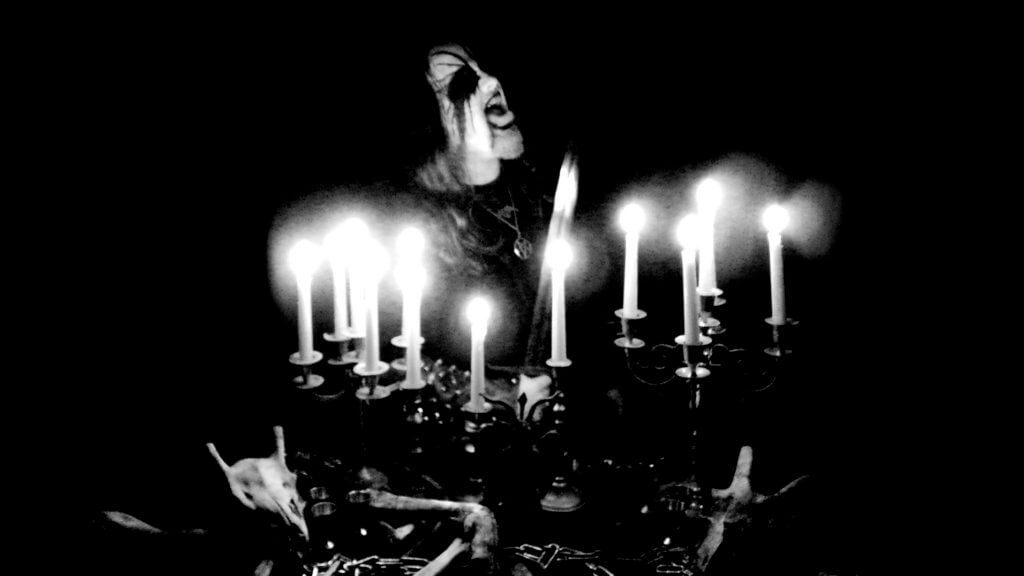
This year marks the 20th anniversary of Drowning the Light – a remarkable milestone worth marking and celebrating. Going back to the genesis of DTL, can you remember what feelings or motivations guided you towards this godforsaken realm? What bands, movements (musical, literary, movies, etc.) or ideologies drove the cursed birth of Drowning the Light? Were you influenced by both the Nordic church-burning euphoria and the Satanic surge of the Black Legions and / or was there also something more serenading you?
“For the creation of DTL and my involvement in Black Metal, we would have to skip a few years back to my first band, Baal Gadrial, which was started in very late 1999 when I was 15 years old. Two friends of mine had come back from a festival where they had seen the Australian cult band Nazxul play, one of those friends leant me the CD they had bought of Nazxul’s EP ‘Black Seed’, which the singer at the time had cut his finger open to sign with blood as well as creating an inverted cross in his blood over the lyrics. This of course left an impression on me, hearing this story and then listening to the monumental EP, and from there I delved deeper into Black Metal. It was on a different level to any other music, it contained true spirit and true darkness and was more than music. It was Black Magick.
“I was never one of those kids who was into music or metal much; since a young age I was always reading horror stories, folklore, myths and legends from across the world, pagan culture, World War II books, as well as always being drawn towards the darker characters in movies, novels and so on. As a teenager, I listened to some pretty typical/generic metal bands, but was never a diehard fan of much, until I got into Black Metal, which pulled me in because it embraced those darker philosophies; it delved into ancient cultures and folklore, it had a more serious approach towards the occult in an authentic way and it spoke to me on a different level than any other music or art could. Of course from there I started tape trading with some of the more underground Black Metal fanatics around Australia, and heard bands like Black Funeral, Mütiilation, Vlad Tepes, Graveland, Absurd, Moonblood, Nokturnal Mortum, Judas Iscariot, as well as hearing about all the actions of the Norwegians in the ‘90s, which appealed to me quite a lot when I was that age. Also reading some of the writings by Michael W. Ford (from Black Funeral) on astral vampyrism and so on which were being shared at the time, particularly the ‘Book of Wamphyri and Shadows’.
“Baal Gadrial was one of those bands which was not well-known but had some small notoriety here in Australia: it was outspoken, very venomous and hateful and we got banned from every venue after every show we played for burning things, using blood, throwing dead rats in the crowd and so on. Since the very first rehearsal we pretty much had the same small amount of tracks written by Ravenstone (guitarist) that just evolved over the years, but after a few years the band became quite inactive and I created Pestilential Shadows with Balam in late 2002. Pestilential Shadows was the first band I wrote some guitar tracks for, on the demo and first album, but soon when it became a live entity my focus was strictly vocals, so I decided to start something where I created all aspects of the music and had total control, which was Drowning the Light, at the time isolating myself and reading a lot of old grimoires and occult literature. I had an old four-track recorder and recorded four demos in 2003.
“Those first DTL demos, although very minimal and primitive in a musical sense, were still a sonic reflection of sorrow, occult darkness, vampyrism and melancholy, which back then were different from the themes of Baal Gadrial and Pestilential Shadows.
“The period of 2002-2006, myself and those who remain from our small circle back then still refer to that era as ‘the all or nothing days’. Everyone had a very devoted mindset to this art, and it was us against the world, which of course involved a lot of chaos but also a lot of dedication – which I can only look back and smile about in retrospect. An example, to put things into perspective, is at gigs we always presumed there would be ‘trouble’, so we would bring a bag full of spiked clubs, swords, axes and so on just in case – but in contrast we would also spend hours upon hours scribing into notebooks the contents of old occult books from the library when there would be an occult exhibition. At the time they would not allow you to photocopy any pages since the books were so old, and even to go in the room to read them you had to produce ID and so on. We were not your typical mindless meathead alcoholic thugs as many others were, we craved dark knowledge but also rejected the modern world.
“Another point that defined what DTL was to be, was in 2005-2006, Baal Gadrial had done its final show and the only album had been recorded but the band was truly over, so I decided to merge that sound and attitude with Drowning the Light, which you can hear on the second full length ‘The Masters Call’ (although this album was released after some of the others from that era, it was chronologically the second album of the band, later renamed ‘The Masters Empire’). The Baal Gadrial full-length was almost put under the DTL moniker, but I decided to keep the memory of that project as it should be with those tracks. Not too long after, in 2007, I parted ways with Pestilential Shadows and solely focussed on DTL, a creation which could (and still does) encompass everything.
“As a side note but still quite relevant in retrospect to Drowning the Light: I grew up living in a house on a mountain which as a child the local folklore was that ‘satanic rituals were held at the top of the mountain in the forest’ (those rumours still persist today). I would explore the forests and at dusk that strange feeling of dread would wash over me, where the forests felt like they were watching, and figureless shadows would be seen on the hills. The house we lived in wasn’t an old house, my parents had built it, but all of my family had different experiences of strange phenomena in this house, from myself and a friend seeing a shadowy man in a hat walking the hallways when I was about seven years old, to both my parents seeing shadowy figures standing over them in their bedroom (at different times), to my mother thinking we were misbehaving in the guest room playing a small synth-in-a-book we had, yet going in the guest room to find no one in there, us fast asleep in our own bedrooms and the synth playing stopping as soon as she enters that room. In my later years, I have found what seem to be burial mounds deep in the forest as well as at night hearing strange unearthly sounds echoing between the trees – this mountain is also where almost every DTL outside photo session has taken place, and even the ones that are by the ocean are directly linked as those areas were formed by that mountain when it was a volcanic vent millions of years ago and erupted. Those in the Black Metal scene here refer to that mountain as the ‘Occult Mountain’ and many have experienced its strangeness.
“I have heard many theories about why the mountain is the way it is, but regardless I am forever drawn to that mountain and it definitely has had a huge influence on DTL since the start and myself… and still does.
“Recently I released the split album ‘Mountain of Malevolence’ with DTL and my other project Ghosts of Oceania, which delves into many of those mountain experiences and the folklore.”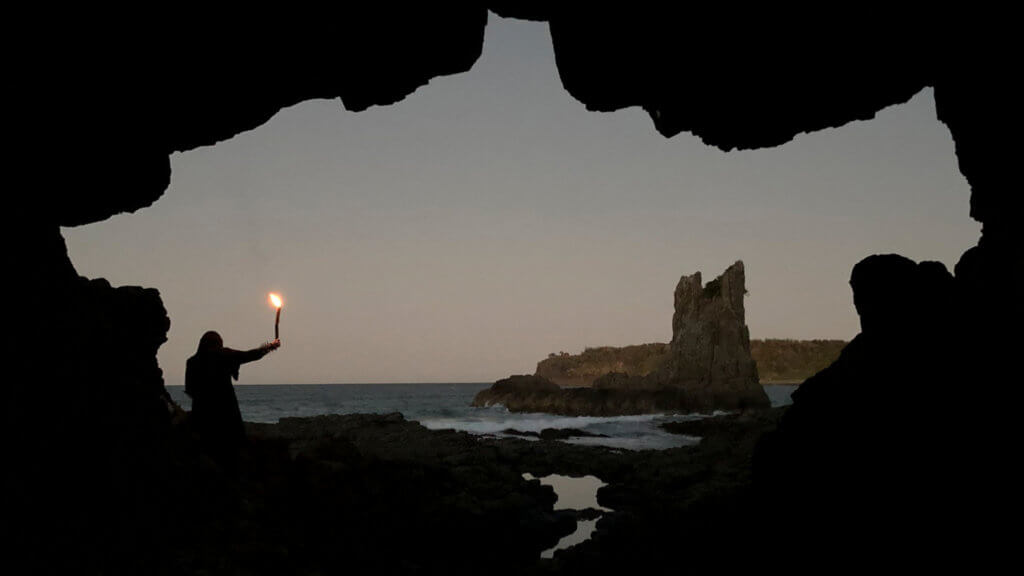
The music on those three 2003 demos – ‘The Haunting of the Black Aristocracy’, ‘Howling Forests of Desolation’ and ‘Dark Winter Depression’ became the stuff of legend in the Black Metal underworld and was immortalised subsequently on immense compilations ‘The Longing’ and ‘The Fallen Years’. Obviously, very important releases within the history and story of the band. How much love and nostalgia do you feel for those recordings today and how would you compare them to your later works?
“These demos always bring back a lot of nostalgia and memories of those ‘all or nothing days’. As with all music, we tend to attach memories/time periods to songs and when I listen to these they are a pure echo of my 19-year-old self, filled with disdain, sorrow and hatred towards the world.
“These were all recorded on my old four-track and I did not know how to bounce down tracks, so they literally have only four layers/tracks per song (one for guitar, one for synth, one for vocals and one for drums), and vocals and drums were recorded through an old set of headphones since I did not have a microphone at the time. As mentioned prior, it was very primitive, both recording wise and musically, yet those demos capture that longing and the spirit of the time very well.
“On those demos I did not go by Azgorh; my pseudonym was ‘The Fallen’, hence why the original compilation double CD of the demos and first album ‘Drowned’ was called ‘The Fallen Years’.
“The first demo ‘Securing your future for Satan’ still has yet to have a public release, but I am considering it after all these years. It is the two tracks from ‘The Haunting of the Black Aristocracy’ but with keyboard drums and far more tortured and extreme vocals.”
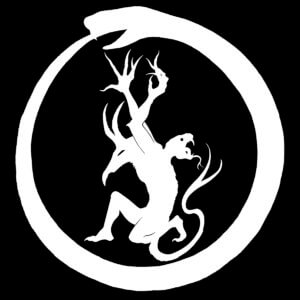 It does feel like perhaps the occult (and therefore Black Metal) found you – and chose you as a vessel – rather than the other way around. Like things were preordained and there could be no other way. To what extent is what you do with Drowning the Light – and other projects – unconscious? Does it ever feel like your art is serving a higher purpose beyond your comprehension? Do the creations, themes, sounds and ideas sometimes seem to emerge of their own accord, or to somehow compose themselves? Or does such a concept belittle your critical role as the (astonishingly prolific) creator?
It does feel like perhaps the occult (and therefore Black Metal) found you – and chose you as a vessel – rather than the other way around. Like things were preordained and there could be no other way. To what extent is what you do with Drowning the Light – and other projects – unconscious? Does it ever feel like your art is serving a higher purpose beyond your comprehension? Do the creations, themes, sounds and ideas sometimes seem to emerge of their own accord, or to somehow compose themselves? Or does such a concept belittle your critical role as the (astonishingly prolific) creator?
“It very much seems to be my fate to have this dark calling in life. As I’ve mentioned, I feel that this art is a reflection of myself, but it is also a reflection of everything beyond my self, those things I can’t put into words, and many times there has been a driving creative force which is certainly not part of my everyday ‘being’. Most songs for projects I am involved with come to me at the moment of sitting down and focusing on the concepts I want reflected in this sonic medium. I don’t ‘noodle’ or practice very often outside of recording.
“Some would call that creative force the ‘Black Flame’, ‘Promethean Flame’ or what I call these days the ‘Setapophian Flame’. That part of human consciousness that uses its subjective view of the objective world to create things that never existed prior or could never naturally occur and then brings them into being. I also view music in general as a form of Black Magick; to many this concept is simply something to use as a catch-cry in some kind of promo text or to call a live show a ‘ritual’, when in fact it is exactly that for many.
“To dive deeper into music as a form of Black Magick, it is also the easiest to comprehend why and how it is just that, you can look at the most basic stereo-type of how a folkloric Witch creates a spell, for example, they gather their ingredients (instruments), mix and brew them together (creating the music), put their intent, Will and focus into said spell so it has the desired effect, then unleash this spell to the ‘victim’, in which it will result in said desired effect occurring – a powerful piece of music can make someone’s entire mood or even outlook on life change, it can drag someone in a happy mood to the darkest depths or the complete reverse depending on the desired effect. However, when it comes to music, I think the true Magick effect is intended for the musician/magickian themselves, and anyone else it may have an effect on is residual. I like to think of music as what I call ‘XeperApep’, many would know the term ‘Xeper’ means to ‘come into being’, however when that coming into being occurs due to something created in ‘Chaos’ (as music is created in chaos before existing in the cosmos), I like to differentiate it by calling it ‘XeperApep’. Apep is of course the chaos serpent in Ancient Egyptian religion, and can only be controlled by the God Set as he travels through the Tenth region of the Night.
“This loops back like an ouroboros to the previous part where I mention the ‘Setapophian Flame’, which is that merging of Set and Apep (‘Apophis’ in ancient Greek) igniting that flame, and that force which consciously yet unconsciously drives my creation. I refer to DTL these days as a form of ‘Setapophian Black Magick’.
“DTL and my other projects I hope are a gateway to those deeper aspects of the left hand path, I am realistic and know that most will listen for the music and music alone, but I think enough is ‘below the surface’ so if someone scratches they will start to see gateways. It is another reason I started doing the riddles and ciphers with every full length since ‘From the Abyss’. I like to reward those for using their mind, not their wallet, and it is also fun for me to create ciphers and then see how others decipher them and hear how much those people got out of them.”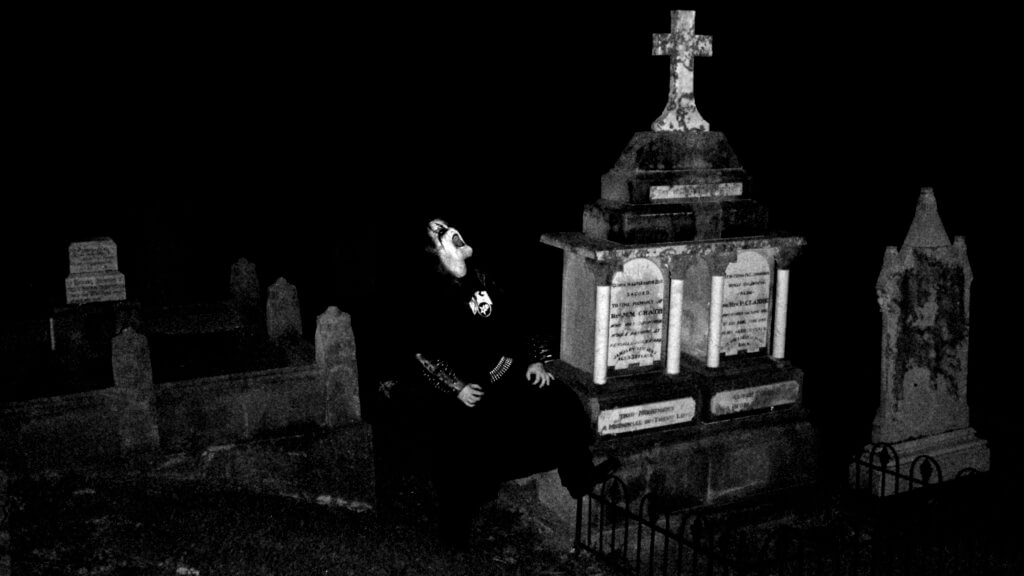
The ciphers are distinguishable in that they encourage listeners to exercise and test their brains, which is rare not just within a Black Metal or music context but the world in general, with people not really able to think for themselves and actively discouraged from doing so by the mainstream everything. How much stock do you place on sharpness of mind, critical thinking, having the ability to solve problems, think on one’s feet? Learning how to think as opposed to what to think? While the answers to many of life’s mysteries might remain elusive, in the quest for wisdom, knowledge and enlightenment, is the journey more important than the destination?
“I think it is extremely important to be able to think for oneself, not only critically but objectively while also understanding that every individual consciousness processes the world subjectively, perception is reality to many so it is important to be aware that we are living in somewhat of a ‘multiverse’ considering reality is different and subjective for every one of us. Once you start looking at the world without the lens of media or the words of false prophets and demagogues, you truly see the mass enslavement and PSYOPs going on everywhere.
“I don’t think the journey ever ends when it comes to the quest for knowledge and wisdom, I am sure even after these vessels of flesh and bone that hold us here and help us to understand ourselves as individual entities return to the earth, even more mysteries will unfold.”
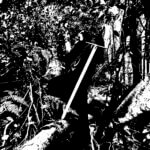 Going back to the debut full-length ‘Drowned’: it was another iconic and landmark release. Still very raw and grim but essential ethereal Drowning the Light magick that captures perfectly a certain time and place and further creates a template for what would become the inimitable DTL sound. How much have you evolved or fine-tuned that sound over the decades? Has it been a slow creep dictated by a reluctance to allow things to become too polished or sophisticated? Obviously, the production has become gradually less primitive, but what else have you tweaked and what have you insisted on persevering with as a non-negotiable? Do you personally have a favourite Drowning the Light album or period?
Going back to the debut full-length ‘Drowned’: it was another iconic and landmark release. Still very raw and grim but essential ethereal Drowning the Light magick that captures perfectly a certain time and place and further creates a template for what would become the inimitable DTL sound. How much have you evolved or fine-tuned that sound over the decades? Has it been a slow creep dictated by a reluctance to allow things to become too polished or sophisticated? Obviously, the production has become gradually less primitive, but what else have you tweaked and what have you insisted on persevering with as a non-negotiable? Do you personally have a favourite Drowning the Light album or period?
“A story I have not told is how ‘Drowned’ initially was much cleaner than the final outcome, not a particularly interesting story but pertinent I feel due to as mentioned above not having any recording equipment other than my four-track. I recorded the musical part of ‘Drowned’ at Balam’s (Pestilential Shadows, Rift etc.) recording dungeon at the time, but when it came to recording the vocals myself, I had to put the recording onto a tape and into my 4-track and then used headphones once again to record vocals (due to the lack of a microphone), and by doing so it made the entire recording a lot rawer than it was. Which I quite liked the sound of (and also just did not care much about ‘production’ back then), but every so often I will listen to those instrumental ‘draft’ versions of ‘Drowned’ and think how much different it sounds being so clear. A few of those instrumental versions were included on the vinyl version of the album released by Iron Bonehead as bonus tracks.
“In the early days of DTL I really didn’t try to sound a certain way productions wise, I have always had a very DIY attitude (and still do) when it comes to recording and Black Metal, I would use what I had, and recorded what I could. Over the years as you mentioned productions have become slightly less primitive, but I still mainly use the same few guitar pedals, and synth for the past decade as I have found a sound that I connect with most.
“I also think because DTL has had so much output compared to many bands, people have been able to hear that slow creep you mentioned materialize as DTL has grown with the listeners.
“Many bands these days use the same VSTs and guitar plugins and everything starts to sound the same and very overproduced or sterile.
“I think rawness adds to the atmosphere of DTL and also sometimes when those raw frequencies meld together they create this wave of inner triumph or melancholy which can’t be reproduced with clearer production. When I think of some of my favourite albums, they are raw, out of time, sloppy and glorious! It is a lost artform.
“One thing that remains is the vocal style I have done since ‘The Masters Empire’ release. It seems to be quite a polarizing vocal style (I have heard them referred to as ‘Goblin’ vocals and even ‘Satanic cockroach’ vocals) but they are one of those non-negotiable parts of DTL. Even though many have said over the years they would enjoy the music far more with a different style, they are here to stay (would DTL be DTL without them?).
“I honestly feel the current recordings/album(s) I have been doing, mainly ‘Conquer or Serve’, are my favourite to date, as I think DTL has become that true shadow and a more potent Black Magickal entity than ever before. Even since we commenced our discussion a few weeks back the current recordings have brought about XeperApep within myself.
“However, other than those early all or nothing days, the period around 2008-2012 was a memorable one as DTL was anywhere from two-four active members (other than myself), we did a few live rituals, I also did a small mini-tour in Finland (in 2009) and there was a greater sense of comradery and a more ‘serious’ outlook within the ‘scene’, along with many bursts of inspiration.”
 The DIY approach is the only one that makes sense as it minimises your chances of being exploited by the exponentially-increasing swarm of leeches sucking the life out of the industry and at the same time maximises your potential to actually benefit in any way financially from your art (not that the latter should be a consideration – but if anybody is going to make money it should be the creator). Black Metal is infested by a slew of self- and agenda-serving woke groupthink gatekeepers, with abominations such as Bandcamp, YouTube, Facebook, Spotify and Encyclopaedia Metallum wielding unthinkable power and influence. You experienced the wrath of the censor’s rainbow-coloured axe first hand when Drowning the Light was exiled from Bandcamp without warning or explanation. Is it too late to take back control from these fuckers? And to what extent has BM contributed to its own entrapment within the internet / social media prison?
The DIY approach is the only one that makes sense as it minimises your chances of being exploited by the exponentially-increasing swarm of leeches sucking the life out of the industry and at the same time maximises your potential to actually benefit in any way financially from your art (not that the latter should be a consideration – but if anybody is going to make money it should be the creator). Black Metal is infested by a slew of self- and agenda-serving woke groupthink gatekeepers, with abominations such as Bandcamp, YouTube, Facebook, Spotify and Encyclopaedia Metallum wielding unthinkable power and influence. You experienced the wrath of the censor’s rainbow-coloured axe first hand when Drowning the Light was exiled from Bandcamp without warning or explanation. Is it too late to take back control from these fuckers? And to what extent has BM contributed to its own entrapment within the internet / social media prison?
“I suppose it is to be expected, as moronic and hypocritical as it may make these sites look, not to mention the mental gymnastics and delusions the people reporting bands must have. This is another one of the by-products of Black Metal becoming popular amongst groups of people who truly do not understand the nature of the genre nor ‘get it’, as this kind of darkness is what these normal humans have been trying to avoid their entire lives.
“Yet the exploration of dark taboos by complete strangers somehow makes them lose sleep at night. What a sad existence that must be.
“It is also usually people who have a very hard time compartmentalizing aspects of certain things because they are so brainwashed by the current political narrative that everything within their tunnel vision must also be ‘politically motivated’ and relevant to their outlook (again, that subjective multiverse we live in, they are surely experiencing the world much differently than you or I and that IS their reality). If one was to sing about Ancient Egyptian spirituality, they are the types who would cry foul about how problematic the ‘tyrannical Pharaohs’ were. They have this almost innate failure to understand that one can have interests in aspects of long dead empires without somehow endorsing ‘all’ aspects of it. I think in a lot of cases these people are hiding or running from something far more nefarious than the darkness explored within Black Metal. Whenever someone is trying to push themselves as the beacon of ‘light’, ‘hope’, ‘love’ and ‘goodness’, and ‘fighting the good fight’, you know there is something ‘off’ at their very core; it is all a cover for whatever their daemon is whispering into the back of their skull – or they really are just part of that easy-to-manipulate herd, which those in power have controlled since time immemorial (which is like a cosmic joke being played on them as they truly believe they are ‘fighting the system’, when they are one of the biggest cogs moving it).
“These people will do everything they can to push certain narratives and reach new levels of hypocrisy, and it is hard to discern whether this is a tragedy or comedy such is the extent of stupidity involved with most of it. These ‘heroes’ of the modern age firstly do not even realize they are the antithesis of this artform, and also humorously enough are the antithesis of the very things they espouse. While trying to preach about their ‘equality Elysium’, they do make it clear that ‘equality’ only extends to those they approve of. While speaking on behalf of the ‘downtrodden’, they oppressively push their own feelings and agendas telling those ‘downtrodden’ how and what to think and feel. And for the most part the people they speak on behalf of despise them! It is also humorous that they pick and choose what is ‘real’ and what isn’t. If they truly do fear bands and music, then should they not be more fearful of songs about Vampyrism? Or is that ‘not serious’ but other lyrics are? Which is it? I often wonder why these people are even trying to get involved with Black Metal in general; does not all Black Magick impose one’s Will onto others? Is this not what they are fighting against? Are they trying to save us like the Christian mothers of Yore who thought ‘Rock N’Roll’ was going to make their children go to hell? Another one of those strange observations: when I was younger the most liberal people would push ‘artistic freedom’ and conservatives would be the ones opposing, yet now somehow the ones trying to oppress art are cut from the same cloth as those who tried to defend it just a few decades earlier. Very strange times we live in and, as I mentioned before, when your eyes are open you can see a PSYOP for what it is, and Black Metal and most ‘scenes’ tend to be that microcosmic echo of what is happening on a larger scale in society.
“I have noticed a slight shift over the past five years or so where now they are trying to insert their own bands into the genre, bands which sing about ‘freedom’ or ‘anarchy’ yet want everyone to be mindless clones with no individuality and want us to conform with the state, and ‘freedom’ only applies if it is the exact kind of ‘freedom’ they approve of; if not, you’re cancelled. Of course, every single one of these bands is pure garbage and a laughingstock, and the sad attempt to further co-opt Black Metal is pathetic. The Adversarial spirit of the genre will never exist in these bands, therefore they are nothing and will never appeal to those in search of that true flame. These people are spiritually dead inside, everything revolves around their materialistic concepts of reality, so once again they project their views onto bands which mostly sing about things beyond this plane of existence or from times long gone.
“I always say DTL may be from this time but it is not of this time. I am thankful for that.
“When it comes to entrapment within the social media prison you mention, I think the problem is that many people and bands become addicted to the attention they receive through such platforms without realizing the illusion they have now trapped themselves in. In the past, I would refer to it as the ‘forum illusion’, where bands would get somewhat of an ego thinking they are ‘famous’ because their forum thread would have thousands of views and pages of discussion, until you look at said thread and realize it is simply the same ten fans talking for pages about the band. These days we see it on a larger scale with these giant YouTube channels that churn releases out daily, where a channel will get say twenty thousand views for an album, the band’s ego will go through the roof, they now think they are rock stars, but then you speak to the label who released that album and barely any copies have sold. And it just takes a simple objective mathematical breakdown of a channel like that to realize that even twenty thousand views is not even 10% of the channel’s subscribers, and of that 10% how many are truly taking that album in? How many are supporting the band or buying the album? How many look deeper into that band? Or are these same people the ones who are just waiting for the same channel to put up another album in a few hours’ time, only to forget the previous one. A true sign of the times and just how disposable a lot of this art has become for its ‘fans’. In the past. you would get an album and listen to it for the entire year and onwards, now a band is lucky if an album is talked about for two weeks before being forgotten.
“Yet regardless, the illusion remains for many bands who think they are now megastars, and their behaviour starts to change and their resolve starts to weaken.
“I do think too many people allow these channels or social media pages to wield too much power, like some Instagram pages which simply post images of old bands, then when they get a big enough following they act like they are the authority on the genre, why? Because on Instagram they repost photos they saved from other online pages? They have not earned a thing, but act like they have.
“Another strong part of the times is people feeling they have entitlement to bands simply because they are a fan. It is like a spectator sport sometimes.
“Most of these pages and sites will never champion genuine Black Metal or its attitude because it would not be beneficial to them. Of course you might come across a page with someone more genuine behind it, but those pages are few and far between as everything genuine seems to be within this Iron Age we currently reside in.”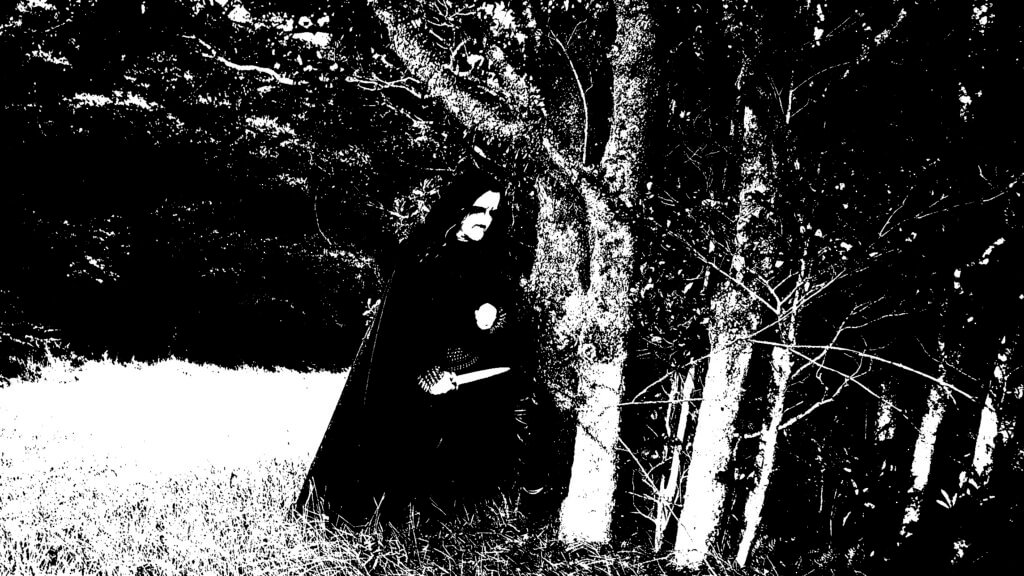
One of the most alluring and omnipresent features of Drowning the Light is the strong – and distinct – sense of sorrow and melancholy underpinning the music. While perhaps sometimes more evident than others, it has been a constant facet of DTL’s sound from genesis through to the present day. It’s not ‘depressive’ or ‘suicidal’ but something different and unique – an inherent, integral sadness that permeates the very essence of your music. What is the source of this sorrow? Are you lamenting life? Death? Decay? The loss of ancient knowledge and our disconnect from the spirit world? The passing of time? Alienation?
“I like to use the word ‘melancholic’ for that element of DTL; it is one of those things I can’t always explain but it has always been a part of me since I was young. As you mentioned it is not ‘depressive’ or ‘suicidal’, it is something deeper.
“Even some of the longing and nostalgia I feel when creating music or listening back to it, is that strange nostalgia one gets for something they have never experienced, those ancient times where my soul belongs. It is that knowledge that you will fight till the end, knowing you may never win and all that you know will be lost, but you proudly fight on. Why I also feel a lot of DTL has a ‘majesty’ to it mixed within the melancholy.
“Far from this soulless shell that humans have turned the modern age into and the vapid husks of humans that exist in it. I can see why so many are nihilistic about life, they have been programmed to be downtrodden zombies who can’t see past the physical realm, thus so many turn to materialism and ego-boosting attention seeking – to what end? I have no idea. And I am somewhat glad I cannot relate.”
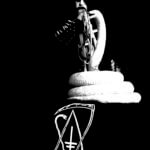 No rest for the wicked… After no fewer than seventeen DTL full-lengths (not to mention all the splits, EPs and demos recorded over the years), you are about to embark on what you describe as your most ambitious record to date: the next Drowning the Light LP, the aforementioned ‘Conquer or Serve’. A fitting title for sure in today’s subservient world of complete mental surrender! What themes, ideas or concepts are you exploring this time and is this album going to be a departure in any way from what you have done previously or a natural continuation along the oft-travelled left-hand path?
No rest for the wicked… After no fewer than seventeen DTL full-lengths (not to mention all the splits, EPs and demos recorded over the years), you are about to embark on what you describe as your most ambitious record to date: the next Drowning the Light LP, the aforementioned ‘Conquer or Serve’. A fitting title for sure in today’s subservient world of complete mental surrender! What themes, ideas or concepts are you exploring this time and is this album going to be a departure in any way from what you have done previously or a natural continuation along the oft-travelled left-hand path?
“My plan currently is for this full length to actually be four or so full lengths. All released at once and all parts of the beast that will be ‘Conquer or Serve’, the first part revolving around the primordial waters of chaos, the next the natural law being tooth and claw, the third part will be how every idealized empire falls and burns (Camelot in Flames), and the fourth will be Xeperapep. There may be more but we shall see what happens.
“Each of these parts will be a fist in the face of the modern world and a mirror to the reality of our existence as well as the more metaphysical aspects of this ‘reality’. It will also have the usual deeper significance for myself and my own spiritual Grail quest.
“It will be unapologetic and something I feel is greatly lacking in modern Black Metal – purpose. I don’t want to speak too much on it before it is done, but I will put my all into this monument.
“Before ‘Conquer or Serve’, there have also been three new EPs ‘Enslaved by the Cave’, ‘Violet Mercury & Moonlit Sorcery’ and ‘Archaic Nocturnal Witchery’, which will all be released prior to the album (by the time this interview is out all three may be released).”
You cited Michael W. Ford as an important early influence on your music and ideology. Since those seminal days of Drowning the Light, a strong bond has formed between the two of you, culminating in Michael welcoming you into the Black Funeral fold as well as a couple of other mutual projects, Strigoii and Varcolaci. Your label Dark Adversary also released some Black Funeral material, while both Black Funeral and Drowning the Light are part of the Order of the Black Serpent collective. How naturally did this union come about and how humbling / enriching is it to now be working so closely with such an important mentor?
“This was an extremely humbling moment for me, ‘Empire of Blood’ by Black Funeral was a huge influence on myself and DTL (as well as Michael’s writing as mentioned previously) so to be asked to be a full-time member of Black Funeral truly was a proud moment, and one I am very grateful for.
“I have been in touch with Michael since around 2006-2007 and after years of corresponding, I released a few early Black Funeral releases, including ‘Empire of Blood’ and a newer (at the time) EP called ‘Choronzon Blood Rite’ through Dark Adversary Productions (he also did some dark ritual ambient overlays for older DTL tracks back then that have never been released but are fantastic). He has also written lyrics for quite a few DTL releases.
“After a few years of Black Funeral being dormant, in around 2015, we had a lengthy discussion and decided I would record the Black Metal aspects of what became ‘Ankou and the Death Fire’. After this he asked me to become a full-time member of the band – which as mentioned was an extremely proud moment, and since then we have collaborated quite a bit. As you mentioned, with Strigoii and Varcolaci as well as Black Funeral.
“Michael’s lyrics and vocals are unmatched as is his Will and attitude towards Black Metal and sonic creations; he is also the master of ritual dark ambient and interwoven pieces which add another element and dynamic to songs which take them to another level. I have also released his newer Darkness Enshroud and Valefor works as well as AKHTYA.
“Darkness Enshroud was one of the first dark ambient entities that I heard when I was younger, which was chilling and had its own unique aura. ‘Unveiled Ghostly Shadows’ is truly haunting and underrated.
“So when I first heard AKHTYA and that aura I had not heard since Darkness Enshroud once again engulfed me, I knew it was one of those rare ritual dark ambient bands that exists on a plane of its own meditative creation.”
How closely are you aligned philosophically or ideologically with Michael’s spiritual, anti-cosmic teachings and writings? Are you an apostle or devotee of ‘The Triad of the Morning Star’? Even if you have much common ground, is travelling the left hand path – Luciferianism or Satanism or vampyrism – a deeply personal journey and one where the spellcaster composes or forges his / her own formulae? Who or what is the black serpent you worship? The snake of Eden, the ouroboros or some other dark materialisation?
“I think our philosophy and ideologies align quite closely, all of us who traverse the left hand path are of course on that very personal journey, it is not a social club but it is always refreshing when you come across those others who are truly devoted to that path in life and live by the sword, so to speak. We all seek truth and knowledge and much can be attained by experiencing those Abyssic Seas alone – all initiates must do this if they are to attempt to achieve Apotheosis.
“But it is also good to bounce thoughts, experiments, rituals and ideas off others with a similar mindset – which is another way to only strengthen your own initial experiences or thought forms.
“If I had to label myself as anything these days it would be ‘Setapophian’, a word that came to me during a working and one that couldn’t be more fitting. Of course the parallels with Luciferianism are very much there.
“It is also something defined by me, while for example ‘Satanism’ these days can be interpreted as anything from ‘Atheism’ to ‘Theistic Devil Worship’, which is quite a sad state of affairs how even the occult has been co-opted by the ‘modern mind’.
“‘Setapophianism can only be defined by me, therefore it is and I am.
‘The Black Serpent has many names! Below the horizon it stalks and the world it shall devour!”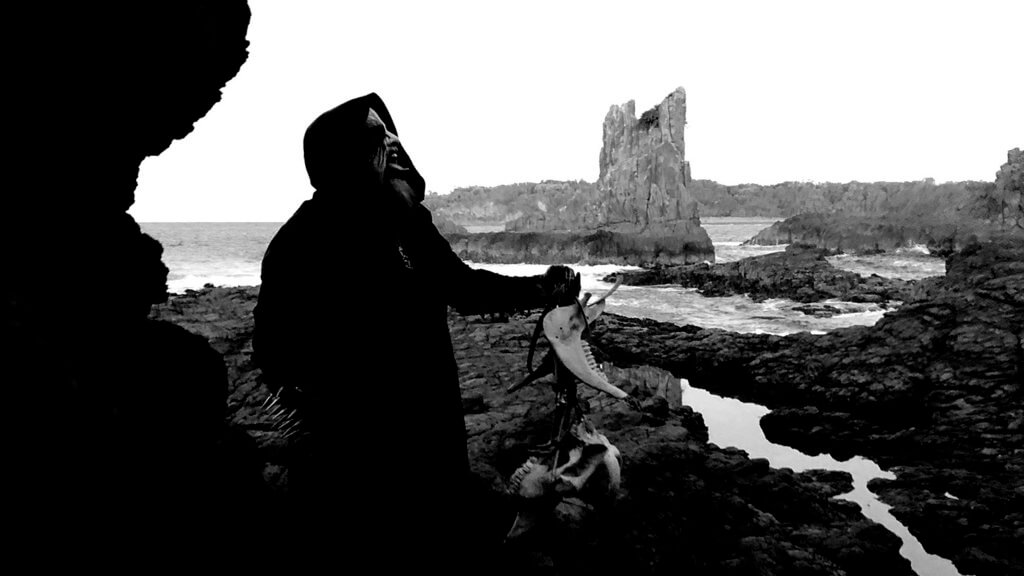
Notwithstanding the quality and quantity of the music, another one of the truly commendable attributes of Drowning the Light – and Azgorh Drakenhof in general – is that you have always stuck rigidly to your guns and done things on your own terms, bloody-minded and with a fierce spirit of independence. Through perseverance and prioritising artistic integrity and honesty over chasing mainstream approval, a certain level of acclaim and popularity has followed, albeit still very much within the darkest recesses of the underground. How surreal is it for such a reclusive and uncompromising artist to have cultivated such an impressive following? And does the predominantly positive reaction to your art make all the effort (for want of a better word) worthwhile?
“It is always appreciated when others connect with this shadow on a deep level, I hope that to some DTL is somewhat of a key to those things deeper and beyond this sonic reflection. However, those who appreciate it on a purely musical level I always find humbling as well; these soundscapes are certainly not for everyone so it is always unexpected and flattering. I will say though that I do not have any illusions of ‘popularity’, I still don’t think DTL is very well known but I appreciate the sentiment.
“It is always rewarding when releasing something and getting positive feedback, it would exist either way but it is nice to know that what I am tapping into within myself is tapping into others as well.
“I like to think that it shows in one’s creation the soul they put into it, and this usually resonates with people and is noticed due to it, as so much of what we consume is soulless, worthless and ultimately meaningless.”
Iron Bonehead recently released the vinyl edition of ‘Among the Cloud-Graves’, the superb debut Varcolaci full-length, Varcolaci being ‘a conceptual manifestation of the deep knowledge and ancient powers associated with Vampyrism from Slavic and Pagan magical practices and religion’. With so many separate but closely-linked bands active at once, is it difficult to decide which riffs, songs and albums should be assigned to each? Or are the boundaries very clear in your mind as the music is being composed?
“I definitely have very clear boundaries in my own mind, I think the closest I have gotten to thinking ‘that could have been a Drowning the Light album’ after a recording was finished was for the last Harvest album ‘Bend Thy Knee & Present Thy Throat to a Burning Sword of a Dark Age’. I will usually go into a recording with a project in mind but if something else manifests I will go in the direction I am guided and that the music dictates.”
You have reached a massive audience around the world with your unique Black Magick and have also made many friends and acquaintances across both hemispheres, all of which has to be a source of great vindication and encouragement. It has been a remarkable journey thus far but what for you is – or will be – the ultimate victory for Drowning the Light?
“Truth, wisdom and being the darkness that is the guiding light.
“This shadow will continue to weave its spells long after my vessel is worm food.
“That means something to me; what is music to most will always mean more to me.”